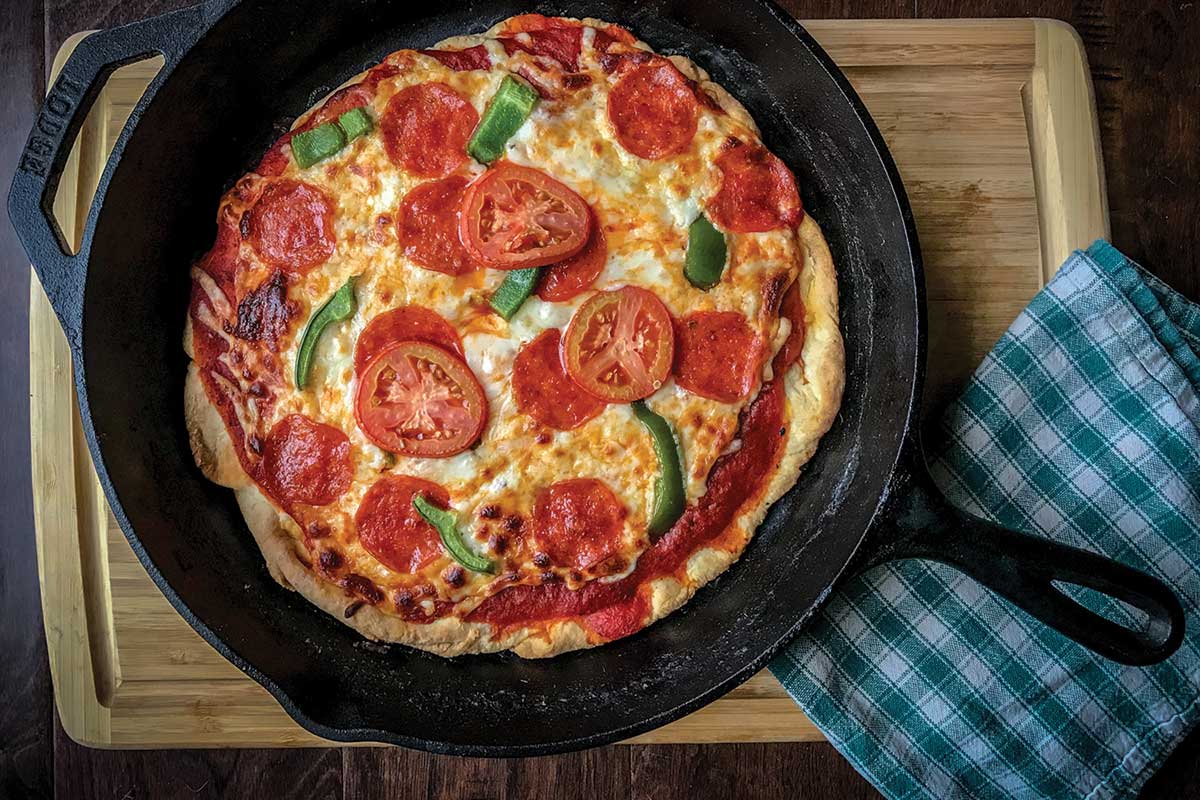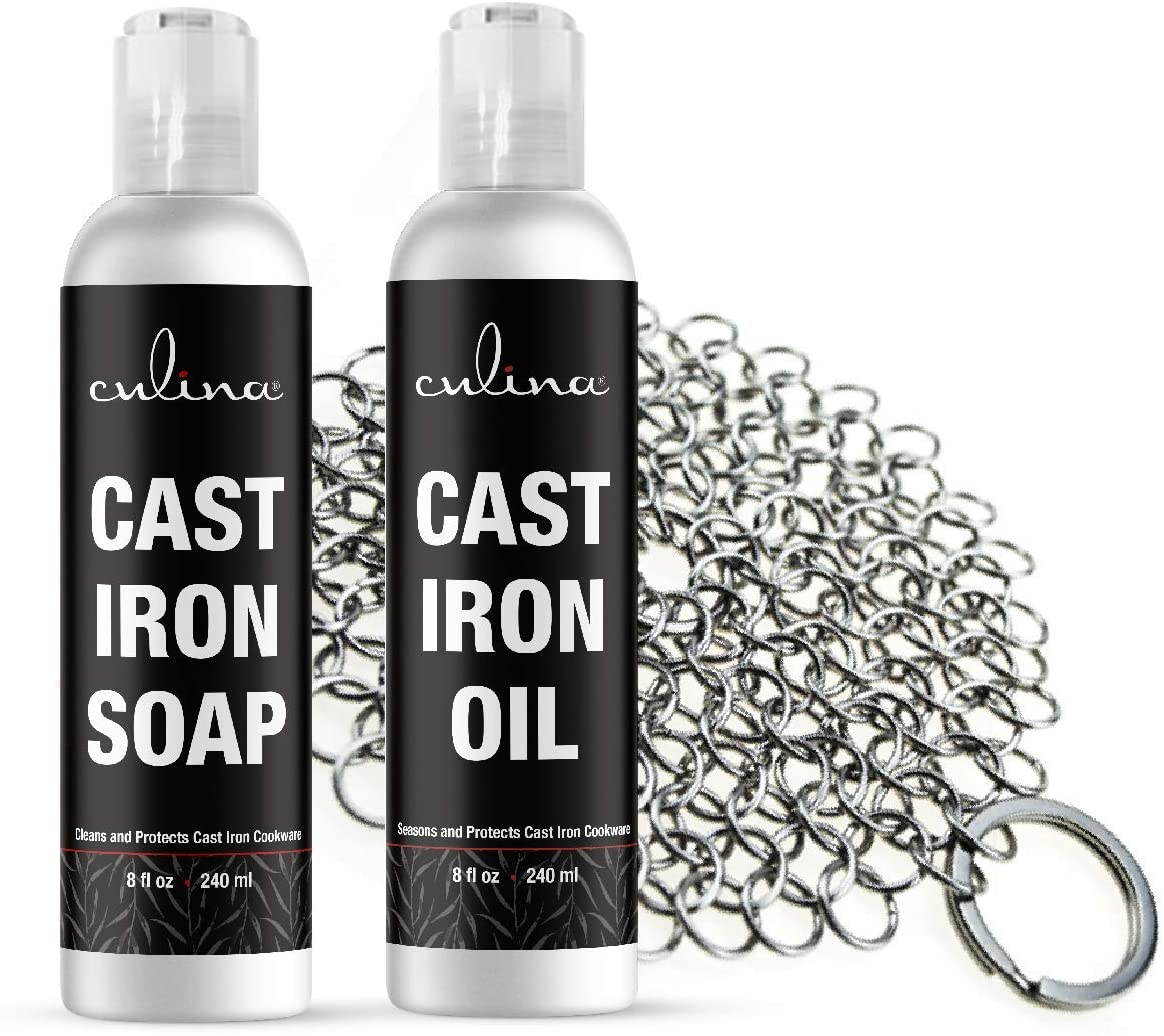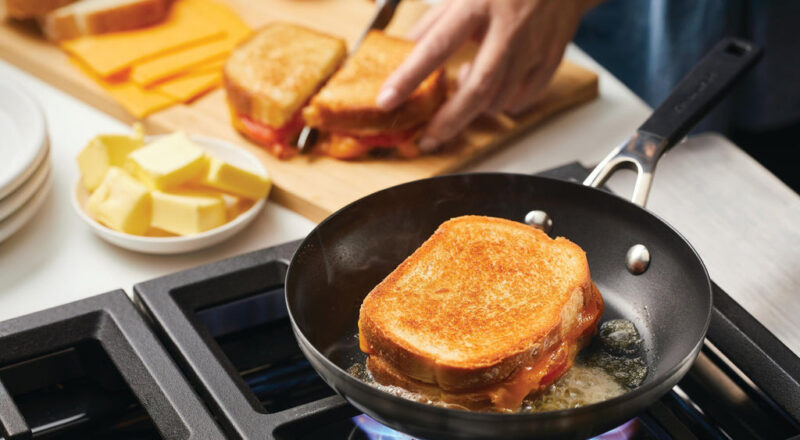For many home cooks and kitchen professionals, a cast iron skillet is a prized kitchen tool. However, over time, even the most cherished cast iron skillets can develop rust. Learning how to season a rusty cast iron skillet is essential to maintaining its quality and extending its lifespan.

Understanding Cast Iron Skillets
Before diving into the specifics of seasoning a rusty cast iron skillet, it’s important to understand the nature of cast iron. These skillets are renowned for their exceptional heat retention and distribution, making them ideal for a wide range of cooking tasks. However, they require regular maintenance, including proper seasoning, to prevent rust and ensure longevity.

Identifying Rust on a Cast Iron Skillet
Rust can form on cast iron due to exposure to moisture, improper cleaning, or lack of sufficient seasoning. Identifying rust early is crucial to prevent any further damage. Rust appears as reddish-brown spots or a rough texture on the surface of the skillet, indicating the need for immediate attention.

Preparing the Skillet for Seasoning
Gathering Necessary Supplies
To successfully season your cast iron skillet, you will need the following supplies:
- Abrasive scrub brush or steel wool
- Mild dish soap
- Paper towels or a clean cloth
- High-smoke point oil (such as vegetable oil or flaxseed oil)
- Aluminum foil
Cleaning the Rust
Begin by scrubbing the rusty areas with an abrasive scrub brush or steel wool. Use mild dish soap and warm water to help remove stubborn rust. Be thorough in cleaning, ensuring that all rust is eliminated before proceeding. Rinse the skillet well and dry it completely with paper towels or a clean cloth.
Seasoning the Cast Iron Skillet
Applying the Oil
Once the skillet is completely dry, it’s time to apply a thin, even layer of high-smoke point oil. Use a paper towel or a clean cloth to spread the oil over the entire surface, including the handle and the underside of the skillet.
Baking the Skillet
Preheat your oven to 450F (232C). Place a sheet of aluminum foil on the lower rack to catch any drips. Put the oiled skillet upside down on the middle rack to prevent pooling of oil. Bake the skillet for one hour, allowing the oil to bond with the iron through a process called polymerization.
Cooling and Repeating
After an hour, turn off the oven and let the skillet cool inside. For best results, repeat the oiling and baking process 2-3 times to achieve a strong, non-stick seasoning.
Key Maintenance Tips
Regular Cleaning
Maintain your seasoned cast iron skillet by cleaning it after every use. Avoid using harsh detergents, and never leave it to soak in water. Instead, use a brush and mild soap if necessary, then dry it thoroughly.
Seasoning Supplements
Periodically reapply a thin layer of oil and bake the skillet to reinforce the seasoning. This can be done every few months or as needed, depending on usage.
Troubleshooting Common Issues
Sticky Residue
If your skillet has a sticky residue, it may be due to excess oil. Simply scrub it off and re-season with a thinner layer of oil.
Flaking Seasoning
Flaking indicates insufficient bonding of the oil to the iron. Strip the skillet down using the method described earlier, then reapply the oil and bake multiple times for better results.
Advanced Seasoning Techniques
Using a Self-Cleaning Oven
To remove stubborn rust and old seasoning, you can use the self-cleaning function of your oven. Place the skillet inside and run a full cycle. Be cautious, as this method reaches high temperatures and can be intense for the skillet.
Professional Restoration Services
For seriously damaged skillets, consider professional restoration services. These experts can use specialized equipment and techniques to restore your cast iron to its former glory.
Conclusion
Learning how to season a rusty cast iron skillet is crucial for its longevity and performance. With proper care and attention, your cast iron skillet can serve you for many years, providing delightful culinary experiences.
FAQs
How often should I season my cast iron skillet?
It’s advisable to season your cast iron skillet every few months or as needed, depending on usage.
Can I use olive oil to season my skillet?
While olive oil can be used, it’s better to opt for oils with higher smoke points, such as vegetable or flaxseed oil, for more effective seasoning.
Why does my cast iron skillet keep rusting?
Rusting can occur due to exposure to moisture and improper drying. Ensure the skillet is thoroughly dried after each use and store it in a dry, cool place.
Learn more about cast iron care from these resources: cast iron care and clean cast iron.
Explore more recipes and tips: chicken thigh recipe, make chili, and dutch oven vs pot.
As an Amazon Associate, I earn from qualifying purchases.

